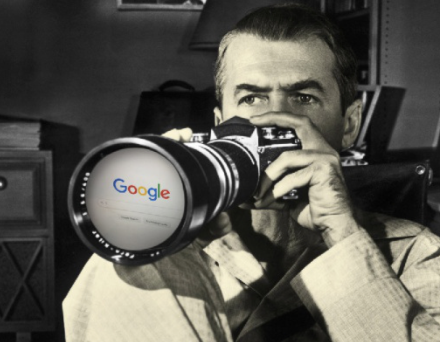My editor, Michelle, was at a birthday party for her son’s friend when another mom mentioned a company she liked, Joymode.
我的编辑米歇尔在她儿子朋友的生日聚会上,另一位母亲提到了她喜欢的公司Joymode。
Minutes later, an ad for Joymode appeared on Michelle’s Facebook news feed.
几分钟后,Joymode的广告出现在米歇尔的脸书新闻推送上。
You may already know that every time you like a post, leave a comment, or tag a friend, that gives Facebook even more ammunition to serve up targeted ads.
你可能已经知道,每当你喜欢一个帖子,留下一个评论,或者标记一个朋友,这就给脸书提供了更多的信息来投放有针对性的广告。
But is Facebook listening to our conversations too? “We don’t look at your messages; we don’t listen in on your microphone.
但脸书也在听我们的对话吗?“我们不看你的信息;我们没在听你的麦克风。
Doing so would be super problematic for a lot of reasons,” said Adam Mosseri, CEO of Instagram, which is owned by Facebook, in a CBS interview.
这么做会有很多问题,”脸书旗下照片墙的首席执行官亚当·莫塞里在接受CBS采访时说。
The truth is, Facebook tracks us in ways we don’t even realize and is so good at it that we think it’s monitoring our conversations.
事实是,脸书以我们自己都没有意识到的方式跟踪着我们,它如此擅长于此,以至于我们以为它在监控我们的谈话。
Instead, it uses sophisticated demographic and location data to serve up ads.
相反,它使用复杂的人口统计和位置数据来投放广告。
If you use Facebook to sign into other websites, that gives them even more data about you.
如果你使用脸书账号登录其他网站,他们会获得更多关于你的数据。
So that’s one easy habit to stop right away.
所以这是一个很容易立即停止的习惯。
Gmail has been more important to me than any product I’ve ever owned.
对我来说,Gmail比我曾经拥有的任何产品都重要。
It’s where my wife and I first started flirting and where, 14 years and two kids later, we send jokes and Gchat-length love notes.
我和妻子第一次调情就是在Gmail中。14年过去了,我们有了两个孩子,我们在这里发送笑话和Gchat长短的爱的短信。
It was the center of my professional life for years.
多年来,它一直是我职业生涯的中心。
It contains the contact information of pretty much everyone I’ve ever known,
它包含了几乎所有我认识的人的联系信息,
plus a decade and a half of credit card bills, tax returns, embarrassing pictures, bad jokes, and apologies for those jokes.
还有十五年的信用卡账单,纳税申报单,尴尬的照片,糟糕的笑话,以及为那些笑话道歉。

But stories about tech companies’ violations of privacy got me thinking about a scenario that once seemed unimaginable: life without Gmail.
但有关科技公司侵犯隐私的报道,让我想到了一个曾经似乎难以想象的场景:没有Gmail的生活。
Google, after all, has been repeatedly accused of improperly collecting user data.
毕竟,谷歌已经多次被指控不当收集用户数据。
Last year, it paid $13 million to settle a class action lawsuit about its Street View program’s scooping up personal information from people’s home Wi-Fi networks.
去年,谷歌支付了1,300万美元解决了一起集体诉讼,该诉讼涉及其街景项目从人们的家庭无线网络中窃取个人信息。
(It denied any wrongdoing.) And yet, I was still giving it the entirety of my inbox.
(该公司否认有任何不当行为。)然而,我的收件箱里满满地都是。
This spring I started telling friends, family, and coworkers to send e-mail to a new address, hosted by my own personal server.
今年春天,我开始告诉朋友、家人和同事把电子邮件发送到一个新的地址,这个地址由我自己的个人服务器托管。
For searches, I started using DuckDuckGo, a Google competitor that doesn’t collect user data.
在搜索方面,我开始使用DuckDuckGo,它是谷歌的竞争对手,不收集用户数据。
I realized I’d been self-censoring my e-mails for years,
我意识到多年来我一直在自我审查自己的电子邮件,
keeping certain thoughts out of even personal correspondence due to a fear that they might wind up in a hack, or a lawsuit, or some advertiser’s data dump.
即使是在私人信件中,也不要让某些想法出现,因为担心它们可能会被黑客攻击,或担心被起诉,或担心被一些广告客户的数据转储。
The experience of having my data sitting only in a little box on my desk was weirdly thrilling.
把我的数据放在我桌子上的一个小盒子里,这种经历让我异常兴奋。














